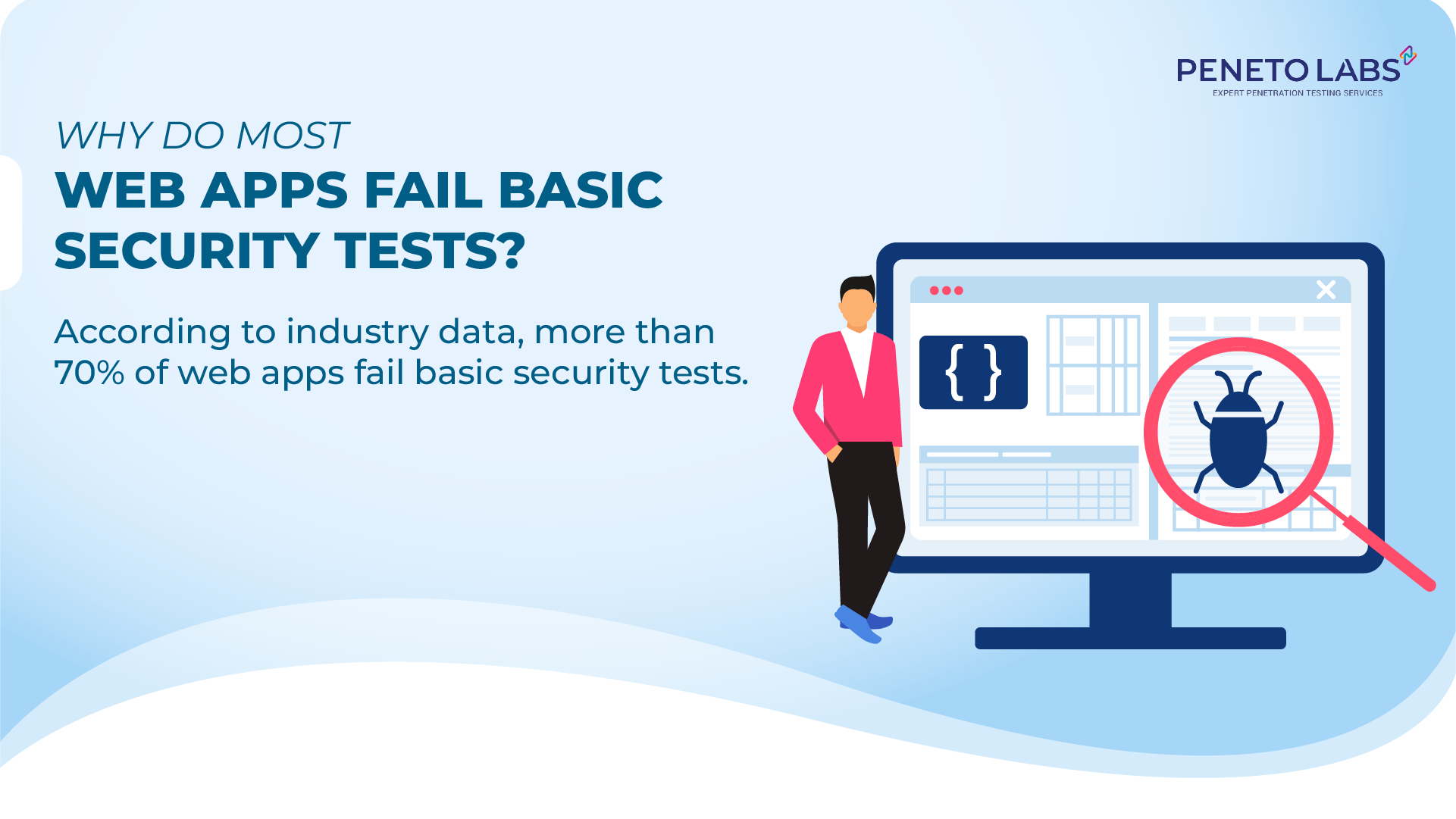Think your web application is safe? Think again. According to industry data, more than 70% of web applications fail basic security tests. These aren’t advanced red-team attacks. We’re talking about fundamental issues that most apps should be able to handle but don’t.
So let’s understand why this happens so often? And more importantly, what can you do to avoid being a soft target?
What Is a Basic Web Application Security Test?
A basic security test checks if your web application follows known security best practices. This includes vulnerability scanning, web penetration testing, and checking for common flaws from the OWASP Top 10 like SQL injection, XSS, and broken access control.
If your app can’t pass these standard checks, your web app is potentially a prey for attackers.
Top Reasons Why Most Web Applications Fail Security Tests
Despite investing in development and hosting, many web applications still fail basic security tests. Here’s why:
1. Weak or No Input Validation
Most vulnerabilities begin with poor input handling. When user input isn’t filtered or sanitized, attackers exploit forms, search boxes, or URLs to inject malicious code (SQLi, XSS, etc.). Developers often assume frontend validations are enough—which is a dangerous mistake.
2. Insecure Authentication and Session Management
Many web applications lack proper session controls or rely on weak authentication practices. No multi-factor authentication, long session timeouts, and predictable password patterns make it easy for attackers to hijack sessions or brute-force credentials.
3. Excessive Privileges and Misconfigured Roles
Web Application often give users more access than necessary. A customer support agent shouldn’t access admin controls. Over-permissioned accounts become easy entry points if compromised. Least privilege is rarely enforced.
4. Leaky Error Messages and Stack Traces
When something goes wrong, web applications often display technical error messages. These messages may reveal server paths, database names, or even code—giving attackers the information they need to plan exploits.
5. Outdated Libraries and Plugins
Using old frameworks, plugins, or third-party scripts with known vulnerabilities is a common issue. Developers skip updates fearing breakages—but attackers don’t skip scanning for outdated software. Unpatched dependencies remain one of the biggest reasons apps fail security assessments.
6. Missing Security Headers
HTTP Security Headers like Content-Security-Policy, X-Frame-Options, and Strict-Transport-Security are rarely configured properly. Without them, apps become vulnerable to clickjacking, man-in-the-middle attacks, and cross-site scripting (XSS).
7. No Protection Against Bots or Automated Scans
Many web apps don’t implement rate limiting, CAPTCHA, or bot detection. This makes them easy targets for brute-force attacks, scraping, and automated vulnerability scanners. Security controls like Web Application Firewalls (WAF) are often missing or misconfigured.
8. Insecure API Endpoints
Most modern web applications rely on APIs—but developers often expose endpoints without proper authentication, rate limits, or input validation. APIs become backdoors for attackers when left unprotected.
9. Lack of Secure Development Practices
Security is often an afterthought. Development teams prioritize features over secure coding. Code isn’t peer-reviewed for vulnerabilities. Security testing is skipped during CI/CD pipelines. This leads to foundational flaws that are expensive to fix later.
10. No Regular VAPT or Security Testing
Many companies build and launch web applications without doing even a basic security audit. Without regular Vulnerability Assessment and Penetration Testing (VAPT), issues remain hidden until exploited. Testing isn’t a one-time task—it needs to happen after every major update.
Final Thoughts
Most breaches don’t happen due to complex hacks. They happen because of missed basics. If your team isn’t following a clear and structured security process, you’re exposed.
If you’re a CTO, DevOps lead, or product manager, you must act now!
At Peneto Labs, one of our core values is providing high quality penetartion testing. We help web app teams discover and fix security issues before attackers do. Our pentesters are certified (OSCP, GWAPT, GCIH) and have secured apps across BFSI, SaaS, healthcare, and government platforms.
Want to know how your web app holds up against real threats?
Book a free consultation with Peneto Labs today!
